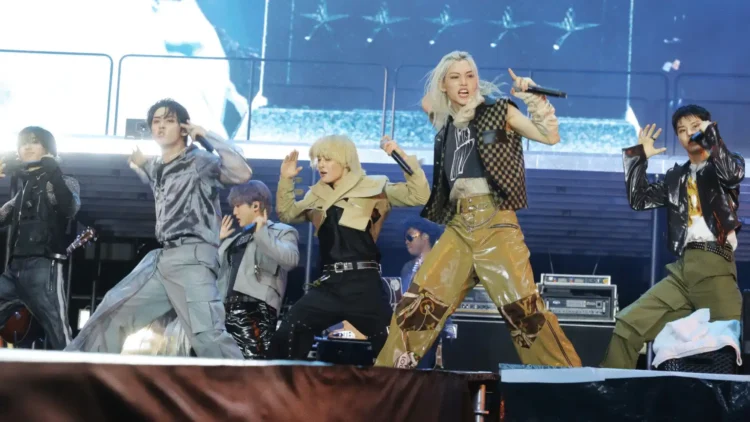JYP Entertainment’s Bold Experiment: An Intimate Island Concert That Challenges K-Pop Norms
In a move that defies the genre’s current obsession with grandeur, JYP Entertainment recently transported a select group of its artists—including Sunmi, Park Jin-Young, and members of the iconic first-generation group g.o.d—to a secluded island for a stripped-down live performance. The event’s scale was deliberately minimal: no towering LED screens, no synchronized drone choreography, and none of the massive dance crews that have become standard in contemporary K-Pop. Instead, the performance offered a handful of artists, a small audience, and the special moment of Sunmi unveiling her latest track, Happy Hour, in an intimate setting.
For those unfamiliar with the label’s role in shaping the industry, JYP Entertainment is one of South Korea’s “Big 3” agencies, alongside SM Entertainment and HYBE. While SM laid the groundwork for the idol industry and HYBE propelled it to global dominance, JYP has consistently cultivated a unique lane blending meticulous pop production with long-term artist development. This legacy makes its decision to host a small-scale, remote concert particularly noteworthy.
Over the past decade, K-Pop has leaned heavily on visual spectacle and large-scale productions, catering to global markets with ever-expanding stadium tours. Yet, JYP’s island showcase demonstrates that impact isn’t solely measured in audience numbers. By stripping away the usual layers of production, the focus shifted squarely onto the performers themselves—especially Sunmi, an artist celebrated for her inventive and boundary-pushing approach to music and performance. In such an intimate environment, every nuance in her delivery became part of the experience.
For fans, this return to simplicity cuts through the relentless pursuit of “bigger, louder, brighter” that dominates the industry. Seeing an artist up close—without the mediation of giant screens—offers a different kind of connection. The event proved that intimacy can still carry weight in a genre built on excess.
This timing is also significant. HYBE remains focused on international expansion, SM is undergoing frequent internal restructuring, and newer fourth-generation groups are touring at breakneck speeds. Amidst this frantic pace, JYP’s deliberate slowdown resonates as a refreshing change—perhaps even a strategic one. Large venues may draw headlines, but they no longer guarantee sustained attention.
While this island performance may not herald a permanent shift toward micro-events for the label, it suggests a willingness to experiment with formats that prioritize artistry over scale. If replicated periodically, this approach could carve out space in the industry for performers who excel when the stage gets smaller and the spotlight more personal.























